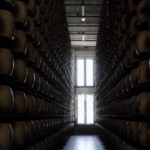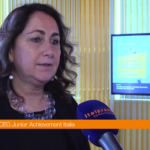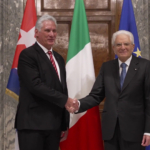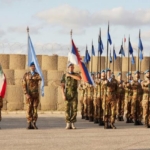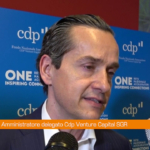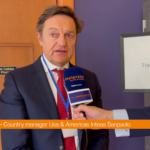On the 23rd of June, a landmark cease-fire agreement was signed in Havana between the FARC (Revolutionary Armed Force of Colombia) and the Colombian President Juan Manuel Santos. The peace talks, which have been held in Havana since November 2012, led to a remarkable achievement: a possible solution to a 50 years lasting conflict.
The meeting was held in Havana, the capital of the small Caribbean country that gave a great support to the negotiation process. In fact, Cuba provided the necessary mediation between a revolutionary armed group and a legitimate government. This task has been carried out in an excellent way by the pre-eminent revolutionary country of Latin America, whose government is the successor of a guerrilla group that took the power in 1959. At the same time, Cuba has created an institutional stability as well as a credibility in international relations. These characteristics gave Cuba the status of a trusted interlocutor in the international community. Moreover, the United Nations Organization (UN) played a determinant role in the peace talks, both in the negotiation process and in the future implementation of the agreement. In fact, the UN Secretary General, Ban Ki-moon, took part in the decisive meeting on the 23rd of June.
The agreement is composed of three parts. The first one refers to the cease-fire, the end of the conflict and the disarmament. The second part concerns the fight against criminal organizations and the safety of political movements. The third one, finally, affirms the commitment of both parts in asking the Constitutional Court to decide which mean could be appropriate in order to check people’s opinion on the agreement (probably a referendum). The first part of the covenant is the most important because it defines how the end of the conflict and the disarmament are going to be ensured. This is going to be obtained by the creation of specific zones, in which the fighters will be able to live, without their weapons, in order to start an integration process in the civil society. Inside these zones, professional or educational courses are going to be organized in cooperation with the government. Another important point of the agreement is that the FARC accepts to deliver all its weapons to the UN. So that the UN officials will be able to use it for the creation of three monuments, which will be designed together by the FARC and the Colombian government. In order to guarantee the respect of the commitments, a monitoring and verify mechanism is going to be founded. It will be composed of representatives of the FARC, the government as well as the UN. The second part of the covenant refers to the commitment of the government in fighting criminal organizations and ensuring for all political and social movements a safety participation in Colombian political life. This is the necessary requirement to allow FARC’s inclusion in the political dialogue, so that they will be able to express their future political claims by legal means. In exchange, the FARC accepts to give up using weapons for political purposes.
The President Juan Manuel Santos declared that a new era of peace in Colombian history has started, but at the same time, it is important to remain realistic, because the issue is not completely resolved. In fact, the Colombian population is required to approve the agreement by a referendum consultancy. Even though the majority of the population expressed its joy when the pact was signed, a part of political forces is more conservative and rejects any kind of negotiation with the FARC. These political forces, headed by the former President Álvaro Uribe, think that the FARC should be defeated by military means. In addition to that, someone observes that the government has not resolved the conflict with smaller armed groups like the ELN (National Liberation Army), which asked the government for separate negotiations.
Nevertheless, the importance of the agreement reached is undeniable. Its symbolic value as well as its pragmatism have restored Colombians hope in the solution of the bloody conflict that has been affecting their country since the sixties.

